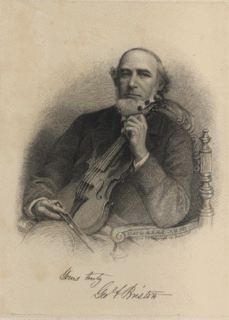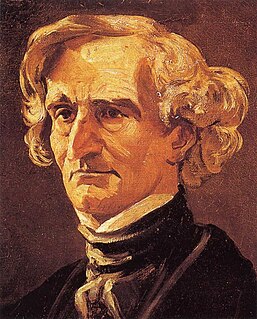This page is based on this
Wikipedia article Text is available under the
CC BY-SA 4.0 license; additional terms may apply.
Images, videos and audio are available under their respective licenses.

Krzysztof Eugeniusz Penderecki is a Polish composer and conductor. The Guardian has called him Poland's greatest living composer. Among his best known works are Threnody to the Victims of Hiroshima, Symphony No. 3, his St. Luke Passion, Polish Requiem, Anaklasis and Utrenja. Penderecki composed four operas, eight symphonies and other orchestral pieces, a variety of instrumental concertos, choral settings of mainly religious texts, as well as chamber and instrumental works.

Dmitri Shostakovich wrote his Symphony No. 2 in B major, Op. 14 and subtitled To October, for the 10th anniversary of the October Revolution. It was first performed by the Leningrad Philharmonic Orchestra and the Academy Capella Choir under Nikolai Malko, on 5 November 1927. After the premiere, Shostakovich made some revisions to the score, and this final version was first played in Moscow later in 1927 under the baton of Konstantin Saradzhev. It was also the first time any version of the work had been played in Moscow.

Eric Edward Whitacre is an American composer and conductor, and speaker, known for his choral, orchestral and wind ensemble music. In March 2016, he was appointed as Los Angeles Master Chorale's first artist-in-residence at the Walt Disney Concert Hall.
Harmonium is a composition for chorus and orchestra that could be considered a choral symphony in all but name, by the American composer John Adams, written in 1980-1981 for the first season of Davies Symphony Hall in San Francisco, California. The work is based on poetry by John Donne and Emily Dickinson. It is regarded as one of the key compositions of Adams' "minimalist" period. The San Francisco Symphony and the San Francisco Symphony Chorus, with conductor Edo de Waart, gave the premiere of the work on 15 April 1981, and subsequently recorded it. The UK premiere was on 13 October 1987 at Birmingham Town Hall, with the City of Birmingham Symphony Orchestra (CBSO) conducted by Simon Rattle. Rattle and the CBSO gave the London premiere on 28 July 1990 at The Proms.
Vagn Gylding Holmboe was a Danish composer and teacher who wrote largely in a neo-classical style.

Westminster Choir College is a residential conservatory of music located in Princeton, New Jersey, United States. Westminster Choir College educates men and women at the undergraduate and graduate levels for musical careers in music education, voice performance, piano performance, organ performance, pedagogy, music theory and composition, conducting, sacred music, and arts management; professional training in musical skills with an emphasis on performance is complemented by studies in the liberal arts. All students study with Westminster's voice faculty, the largest voice faculty in the world. The school's proximity to New York City and Philadelphia provides students with easy access to the musical resources of both cities.

Margaret Eleanor Hillis was an American conductor. She was the founder and first director of the Chicago Symphony Chorus.
Osvaldas Jonas Balakauskas is a Lithuanian composer of classical music and diplomat.

Frank Ticheli is an American composer of orchestral, choral, chamber, and concert band works. He lives in Los Angeles, California, where he is a Professor of Composition at the University of Southern California. He was the Pacific Symphony's composer-in-residence from 1991 to 1998, composing numerous works for that orchestra. A number of his works are particularly notable, as they have become standards in concert band repertoire.

George Frederick Bristow was an American composer. He advocated American classical music, rather than favoring European pieces. He was famously involved in a related controversy involving William Henry Fry and the New York Philharmonic Society.
Robert Strassburg was a
leading American conductor, composer, musicologist and music educator of the twentieth century. His studies in music were completed under the supervision of such leading composers as Igor Stravinsky, Walter Piston and Paul Hindemith, with whom he studied at Tanglewood. His formal academic studies were completed at the New England Conservatory of Music and Harvard University, where he obtained a fellowship in composition. He also completed a doctorate in Fine Arts at the University of Judaism in Los Angeles. As a musicologist, Dr. Strassburg is regarded as a leading authority on the compositions of the composer Ernest Bloch.
The Bells, Op. 35, is a choral symphony by Sergei Rachmaninoff, written in 1913. The words are from the poem The Bells by Edgar Allan Poe, very freely translated into Russian by the symbolist poet Konstantin Balmont. The traditional Gregorian melody Dies Irae is used frequently throughout the work. It was one of Rachmaninoff's two favorite compositions, along with his All-Night Vigil, and is considered by some to be his secular choral masterpiece. Rachmaninoff called the work both a choral symphony and (unofficially) his Third Symphony shortly after writing it; however, he would later write a purely instrumental Third Symphony during his years in exile. Rachmaninoff dedicated The Bells to Dutch conductor Willem Mengelberg and the Concertgebouw Orchestra.
Ivana Loudová was a Czech composer.
Chorale is the name of several related musical forms originating in the music genre of the Lutheran chorale:

Charlotte Seither is a German classical composer, pianist and music educator. She has composed a wide range of orchestral, chamber and choral music, winning many awards including the 2014 German Music Authors' Prize for contemporary choral composition. Her works have been performed across Europe, in Asia and in the Americas.









